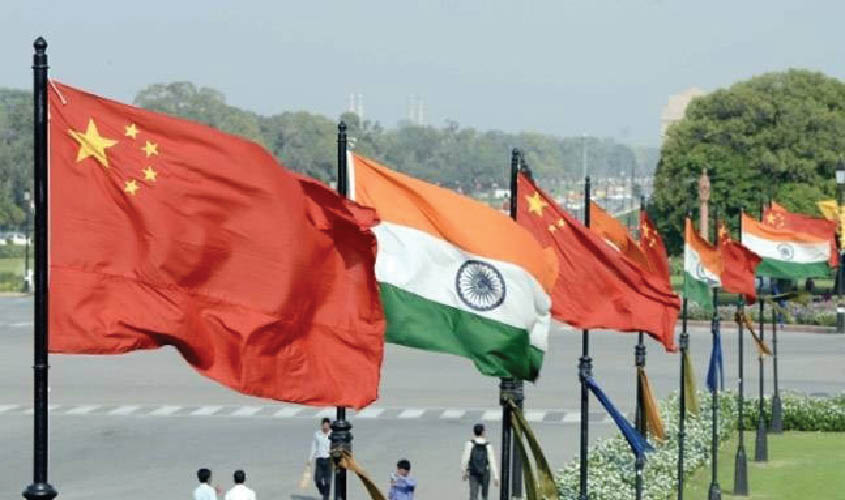Many of the big Chinese telecom firms have invested millions of dollars in India.
New Delhi: More than $90 billion of bilateral trade between India and China (2018 figures), which includes $76 billion of Chinese import to India (mainly electronic goods, manufactured goods) is likely to get hit by China’s stubborn efforts to save Jaish-e-Mohammed chief Masood Azhar from being declared as an international terrorist. Official sources said that the government was looking at options that it has on the commerce and trade front.
On Thursday, China, for the fourth time, blocked (put a technical hold) a proposal at the United Nations to designate Masood Azhar as a global terrorist.
This has come as a major setback to Indian efforts to proscribe the Pulwama mastermind under the 1267 Al Qaeda Sanctions Committee of the UN Security Council (UNSC).
The proposal against Azhar was initiated by France and backed by the US and the UK. Russia, another permanent member of the UNSC, also backed the move. Australia, Bangladesh, Germany, Poland, Italy, Japan and Belgium were among the co-sponsors of the proposal. Other non-permanent UNSC members also decided to support the move. China, a permanent veto-wielding member of the UNSC and Pakistan’s “all-weather” ally, blocked previous attempts in 2009, 2016 and 2017.
Government sources said that the Indian government was very disappointed with China’s stand and all “gloves” are off now. According to them, this has come as a personal setback for the top political leadership of the country, as plenty of time was put to mend and nurture relations with China.
“This was a genuine case (of proscribing a terrorist) and a much mature response was expected from China. However, it has mined no word in making clear that it will support Pakistan-backed terrorism. We cannot continue to live in denial anymore and have to act accordingly,” a senior government source said.
Official sources said that India is one of China’s biggest markets with the former importing more than $76 worth of products every year as on March 2019 from China, and this amounts to 16.5% of India’s total imports.
“China’s economy is not doing well. Its 2019 GDP growth rate was the slowest in the last three decades and its exports have gone down by 20% compared to last year. We are looking at the economic options that are available to us which are not limited to imposing increased tariffs on Chinese imports. China needs to understand that it cannot stand with terror groups that are killing our men and also continue to earn billion of dollars from India,” the source added.
Many of the big Chinese telecom companies that are backed by the Chinese government, like Huawei, have invested millions of dollars in India and are planning to invest more in the coming years, considering the massive markets for their products and the increasing Indian middle class whose spending income has been rising steadily.
Huawei last year had stated that it was planning to spend over $100 million in the next three years in India with the aim to develop the country as its biggest market.
Similarly, another Chinese telecom major, Vivo, plans to invest to Rs 4,000 crore in the coming years in India. By 2018, Chinese brand Xiaomi,Vivo, Oppo, One Plus and Huawei have cornered 52% of the $8 billion smartphone market of India and experts s ay that this percentage will increase even more in the coming two years with Chinese phones taking up almost 75% of the total market share.
India, according to experts, was the second biggest market of smartphones, after China and the same will grow ever more after 5G is rolled out in the coming months. India imports close to Rs 72,000 worth of telecom equipment from China annually, most of which come from Huawei and ZTE.
The government after initially denying Huawei from participating in the trial of the 5G roll out in the country, on the lines of other countries like Australia, New Zealand and United States, had asked the company to participate in it. However, sources said that this move will be reconsidered now.
Indian Intelligence agencies, just like the agencies of other countries, have warned the Indian government from including Huawei in the roll out of 5G, considering its alleged close ties with the Chinese army, an allegation which has been strongly denied by Huawei.
“It is true that China’s export to India account for only 2% of its total exports, but that 2% is also a huge figure and Chinese companies cannot afford to have a hostile government. If we decide to change our outlook towards Chinese products from the present one, which is of favouring them, they will start feeling the results within two to three months. The recent actions of the Chinese government are leaving us with very little options but to take some hard decisions,” the official quoted above said.
According to Sana Hashmi, a Delhi-based Sinologist who has also authored a book on China, India is in a position to take some steps at the bilateral level.
“At the security front, the first could be to suspend India-China joint military exercise, ‘hand-in-hand.’ The exercise was suspended amid the Doklam standoff in 2017, and resumed in December 2018. On trade and commerce front, India should not only take steps due to China’s blocking but also because of its own long overdue efforts to reduce the huge trade deficit with China. India can impose some anti-dumping measures. Additionally, India could ban cheap plastic goods from China through good use of non-tariff barriers including health and environmental concerns. Products coming from Tibet and Xinjiang could also be stopped due to human rights violation issues. Then there is the issue of Huawei and security breaches. However, each of these measures has a diplomatic and economic cost involved. The government has to keep those scenarios in mind,” she said.

